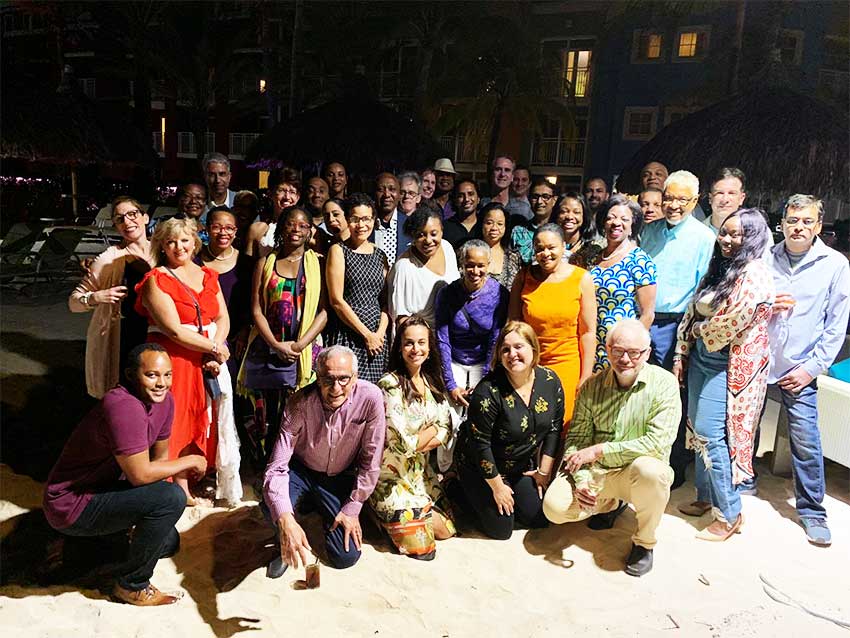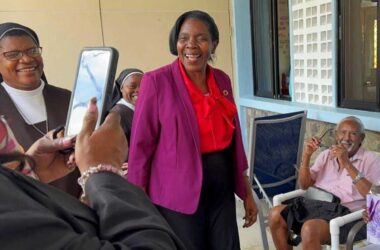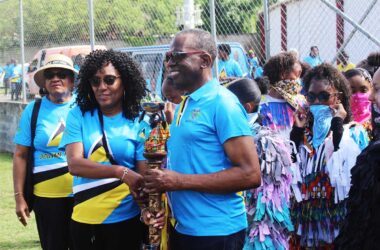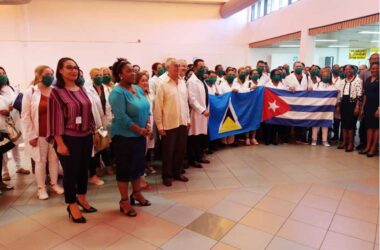PRESS RELEASE — The Caribbean Association for Rheumatology (CAR), an NGO with a vision “To create a group of persons working synergistically to provide the highest quality of care for all patients with rheumatic disease across the Caribbean” celebrated its 10th anniversary in Curacao at the annual scientific symposium from 3rd to 5th May 2019. Last year the association hosted its conference in St. Lucia.
Dr. Amanda King, founding president, was elected to the class of Fellow. This honour is bestowed on a person “who is distinguished by his work in Medicine or Research in the Caribbean or abroad and has contributed to the advancement of Rheumatology or has rendered conspicuous service to the Company”.

Professor Eon Nigel Harris is the only other Fellow. He is past Vice Chancellor of The University of the West Indies (UWI), Mona, and Internationally renowned for recognizing the existence of The Anti-phospholipid antibody syndrome and devising the laboratory test for this condition, along with a team at St. Thomas’ hospital in London in 1984.
Keynote speakers were Professor Maarten Boers, Professor of Clinical Epidemiology, Amsterdam, and Principal investigator for the landmark trials, COBRA and OMERACT and Dr. Amza Ali, senior consultant in medicine and neurology at Kingston Public hospital and associate lecturer in neurology in UWI, Jamaica. Dr. Ali delivered the Eon Nigel Harris lecture
CAR provides a forum for presentation of data, discussion of instructive cases, regional as well as international collaboration, in an effort to improve rheumatological care for Caribbean people. Most Caribbean countries have no rheumatologist and CAR is looking into solutions to bridge that gap eg. through telehealth.
It is well known that people have healthier, longer lives if they are diagnosed early, with milder disease and are empowered to live positive lives, develop constructive coping skills, eat natural foods, drink water, value rest, as well as exercise regularly and avoid smoking and excess alcohol. CAR encourages healthy lifestyle as well as adherence to medication since the patients who are not adherent have a poorer outcome and increased mortality.
CAR continues to improve collaboration with patient organizations as well as organizations like the Association of Women in Rheumatology (AWIR) of which CAR is a global partner, and the Scottish Rheumatology Ultrasound group (SRUG), to strive to achieve its objectives. Governments can help significantly by making medication like Plaquenil available in the public health service since all lupus patients require this medication to improve quality of life and prevent complications. It is relatively inexpensive but many still cannot afford.Methotrexate is another medication that is not expensive and is the “Gold standard” disease modifying medication for rheumatoid arthritis. It must be made available in public pharmacies in St. Lucia as it is in Barbados, Trinidad, Jamaica and other islands.
Poverty is the main reason patients cite for not buying their medication regularly, hence non-adherence.
If patients are diagnosed early, started on these medications and live a healthy lifestyle, empowered by the self- management program (Viv Byen in St. Lucia), supported by their support group ( SLALA in St. Lucia), adhere to the management plan, follow up with the health team ensuring all aspects of health are addressed and blood pressures, sugar, cholesterol etc are at target, then we will have a healthy society with little need for the very expensive newer therapies like biologics which often cost EC5000/ month , much less need for hospitalization and dialysis, and patients will be able to work without disability.








![Amy Stephen [Photo credit: Community Tourism Agency]](https://thevoiceslu.com/wp-content/uploads/2026/01/Amy-Stephen-feat-380x250.jpg)





